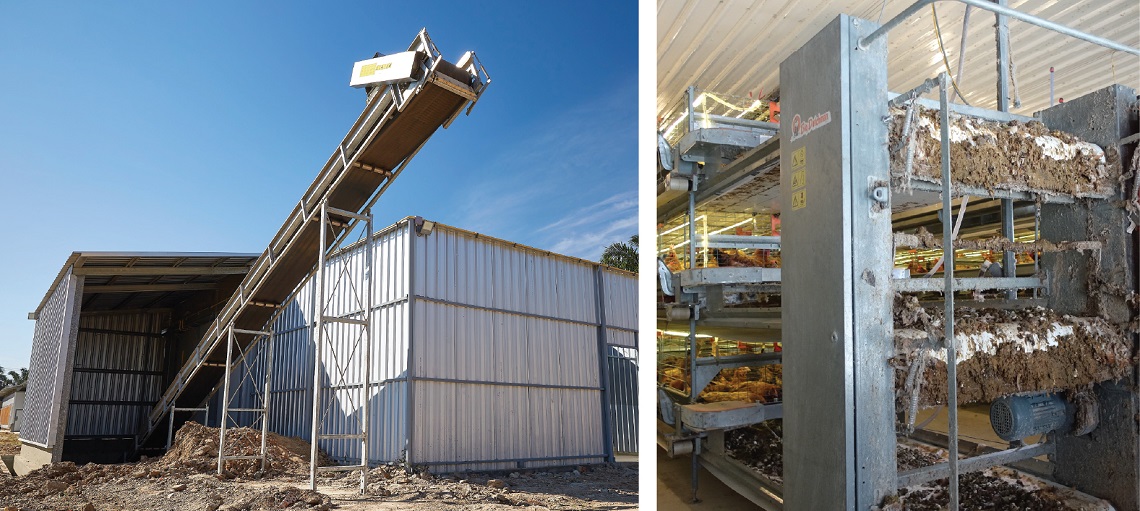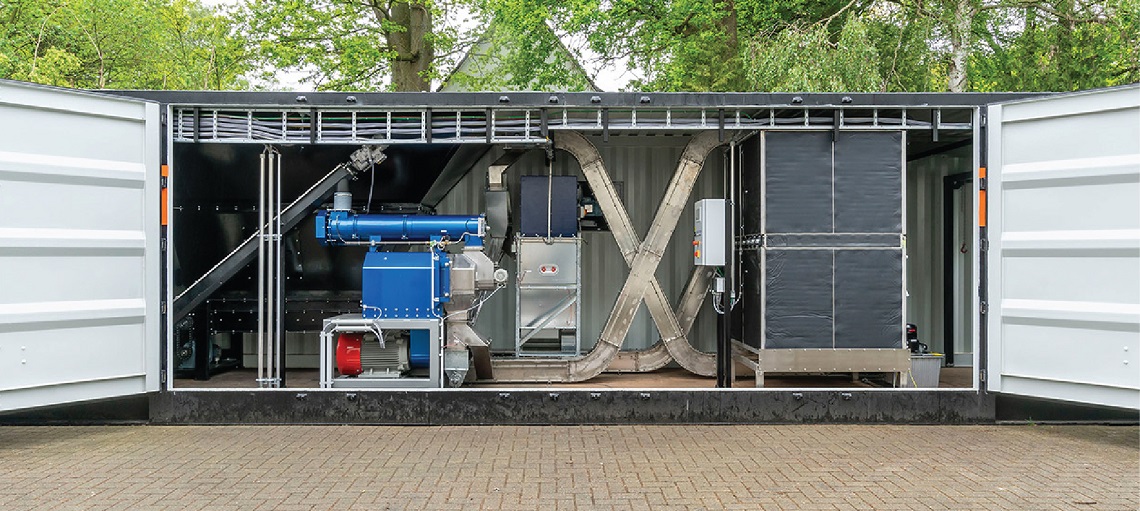Waste to Value: Effective Strategies for Managing Manure in Poultry Production
In poultry farming, managing manure effectively is crucial for maintaining a sustainable operation and ensuring environmental health. As with any intensive poultry production operation, livestock waste has a significant effect on all aspects of the environment, including air, water, soil, biodiversity and climate change. Farm hygiene, biosecurity and health of workers are also critical considerations when dealing with poultry manure.
The proper management of manure is crucial from both the environmental and health standpoint, which makes it a challenging operational task. However, poultry manure can be transformed from waste into a valuable resource that benefits both the farm and the broader ecosystem. While this has been done for decades, recent advancements in technologies and processes have made turning waste into value a into a far easier undertaking.
Importance of Manure Management
Environmental Protection

Proper manure management is essential for protecting the environment. Uncontrolled manure can lead to water pollution, soil degradation, and air quality issues. Implementing effective management practices helps mitigate these risks, ensuring that farming operations are environmentally sustainable.
Nutrient Recycling
Poultry manure is rich in nutrients such as nitrogen, phosphorus, and potassium. These nutrients are essential for plant growth and can be recycled back into the soil to enhance soil fertility and crop yields. By utilising manure as a fertiliser, farmers can reduce their reliance on synthetic fertilisers, which are often costly and environmentally damaging.
Economic Benefits

Turning manure into a valuable resource can provide significant economic benefits for poultry farmers. Properly managed manure can be sold as fertiliser, generating additional revenue. Moreover, using manure on the farm can reduce the costs associated with purchasing commercial fertilisers.
Effective Manure Management Strategies
Manure Collection and Storage
Efficient collection and storage of manure are the first steps in effective manure management. Here are some key practices:
Manure Collection Systems

- Solid-Liquid Separation: Separating solids from liquids in manure can make handling and processing easier. Mechanical separators, screens, or settling tanks can be used for this purpose.
- Scraping and Flushing Systems: Regular scraping or flushing of manure from poultry houses helps keep the barns clean and reduces odour. Flushing systems use water to move manure to storage areas.
Manure Storage Options
- Manure Pits and Lagoons: These are commonly used for storing liquid manure. They should be lined to prevent leakage and located away from water sources to avoid contamination.
- Composting Sheds: Composting sheds provide a controlled environment for composting solid manure, CompoTower from Big Dutchman is one such technology that converts organic waste into high quality compost, which is suited for large poultry farms with high bird capacity. This method reduces volume, kills pathogens, and produces valuable compost for soil amendment.
- Covered Storage: Covering manure storage facilities minimises odour, reduces ammonia emissions, and prevents rainwater from diluting the manure.
Adding Value with Treatment and Processing
Treating and processing manure can convert it into valuable products and reduce its environmental impact. Here are some effective methods:
Anaerobic Digestion (Biogass)
Anaerobic digestion breaks down organic matter in the absence of oxygen, producing biogas (a mixture of methane and carbon dioxide) and digestate (a nutrient-rich by-product). Biogas can be used as a renewable energy source, while digestate serves as a fertiliser. This process reduces greenhouse gas emissions, produces renewable energy, and provides a stable, nutrient-rich fertiliser.
Composting
Composting is the aerobic decomposition of organic matter, resulting in a stable, humus-like product. Manure should be mixed with carbon-rich materials like straw or sawdust to achieve the right carbon-to-nitrogen ratio. Composting reduces the volume of manure, kills pathogens, stabilizes nutrients, and produces a valuable soil amendment that improves soil health and fertility.
Pelletising

While compost can be returned to the soil as fertiliser, another processing step can add further value to the waste product. Pelletising is a process that transforms compost into more stable and uniform fertiliser pellets that can be used agriculture and horticulture. Pellets are also more hygienic and reduces the compost volume by up to two thirds, making it easier to store and transport.
Effective manure management is essential for poultry farmers to ensure environmental sustainability, enhance farm productivity, and comply with regulations. By adopting best practices in manure collection, storage, treatment, and land application, and by leveraging innovative technologies, farmers can turn manure from a waste product into a valuable resource. By implementing the right strategies in place, poultry producers can contribute to a more sustainable and profitable poultry industry.
Discover a full suite of waste management equipment – from manure collection, transport, composting and pelletising. Click the ‘Send a Message’ Button below to talk to us.

